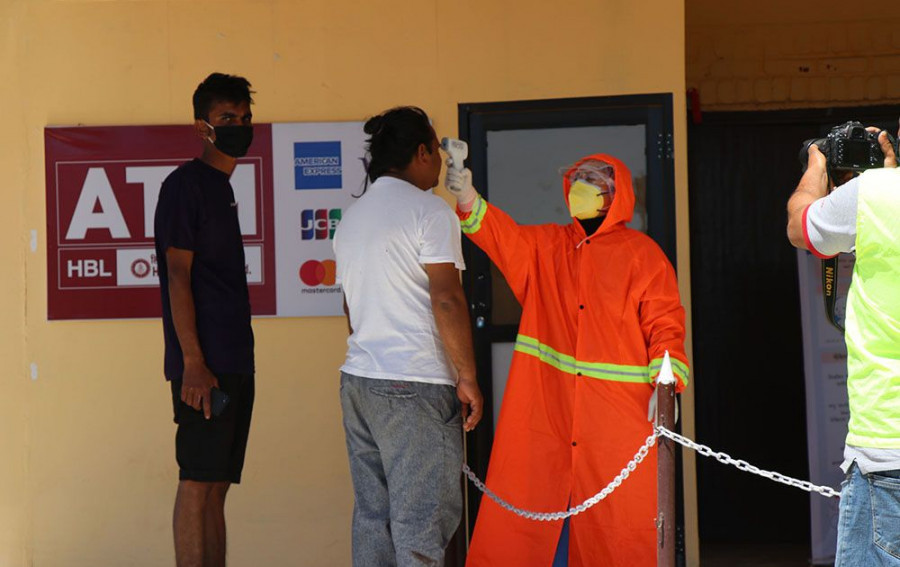Editorial
In the shadow of Covid-19
Disruptions in health services due to the pandemic could result in a secondary health crisis.
Ever since the country was locked down to contain the spread of Covid-19, doctors and public health agencies have feared that other major diseases could be spreading silently in the shadow of Covid-19. Now, an increasing number of peer-reviewed research is reporting that disruptions in health services worldwide could result in a secondary health crisis. Ignoring this ‘shadow curve’ of other life-threatening diseases, experts say, could kill people and decimate all hard-won goals of the past while the coronavirus takes centre stage.
Restrictions, excluding for emergencies in the wake of the pandemic, have meant that hundreds of thousands of people in the country have stayed away from hospitals and clinics and postponed their regular health check-ups and treatment. Essential screenings and diagnoses for major non-communicable diseases and conditions like cancer, diabetes and heart diseases are also on hold while the government channelises all resources to flatten the Covid-19 curve. These measures have not only disrupted the country’s already fragile health care system, but they have also increased health risks for existing patients and for those who could ward off diseases with timely interventions.
As months of restrictions pass by, there are serious concerns that this ‘shadow curve’ will have fatal consequences. Studies have shown that deaths caused by HIV, malaria and TB could increase in the millions worldwide over the next five years due to the lack of treatment during the pandemic. There are similar concerns for cancer, heart disease and neurological disorders, among other diseases, as multiple reports validate a deadly health crisis in the shadow of Covid-19.
Access to healthcare services should no longer be a matter of Covid-19 or not. People should not suffer or die due to a lack of treatment. This is a fundamental human right enshrined in the Constitution of Nepal. The government must consider the fact that unless we have a proven vaccine, the coronavirus is here to stay, and it cannot close its eyes to other life-threatening diseases and let those who are ailing to suffer or die. Mothers and newborn babies needn’t suffer or die due to lack of treatment, and kidney patients shouldn’t be protesting for their dialysis services to resume. In the past few months, there have been countless reports about hospitals rejecting patients, some of whom even died trying to find treatment. But there are also instances where hospitals and doctors have shown sensibility and grit to even perform surgeries and administer deliveries of Covid-19 patients. And some have embraced telemedicine in these testing times. These instances show how a lack of or an implementation of a protocol protects both patients and healthcare professionals and can be a win-win situation, even during a pandemic.
That this is not an easy situation, given the public health emergency, is understandable; there is, however, an urgent need to tackle this silent spike of the ‘shadow curve’ to prevent avoidable tragedies and diseases. Firstly, the government cannot continue to sit on data and not correct its handling of the situation, which is far from par as cases continue to rise exponentially. Secondly, it should immediately consult infectious disease doctors and epidemiologists, public health agencies and stakeholders to implement a national protocol and introduce interventions to ensure regular health care services, especially for other infectious and non-communicable diseases, amid the pandemic.




 14.24°C Kathmandu
14.24°C Kathmandu














